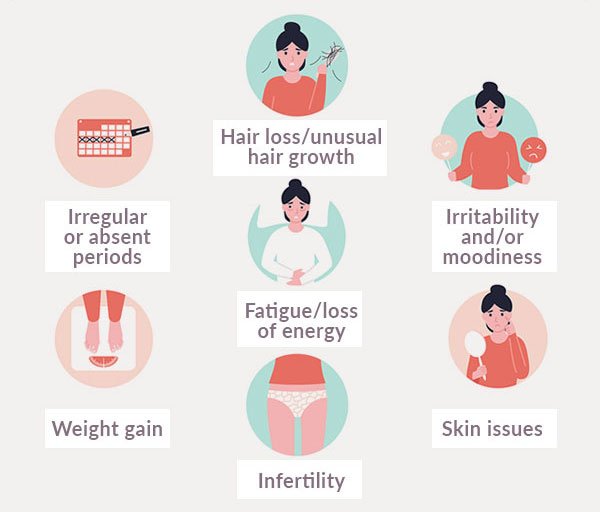Hormonal Belly Fat: What It Is and How to Get Rid of It
Hormonal belly fat is a frustrating issue for many people, and it often seems immune to traditional weight loss methods. Unlike general belly fat, hormonal belly fat is linked to imbalances in the body’s endocrine system. But why does this happen, and more importantly, how can you address it? This article delves into the causes, symptoms, and actionable steps to tackle hormonal belly fat effectively.
What Is Hormonal Belly Fat?
Hormonal belly fat refers to excess weight stored in the abdominal region due to hormone imbalances. These imbalances can trigger fat storage, particularly around the midsection, regardless of your diet or exercise habits.

Key Hormones Involved:
- Cortisol: Known as the stress hormone, cortisol helps your body manage stress. Chronic stress, however, can lead to excess cortisol, causing your body to store more fat, especially around the waist.
- Insulin: This hormone regulates blood sugar levels. When insulin levels are consistently high due to a poor diet, the body begins storing fat in the abdomen.
- Estrogen: Too much or too little estrogen can lead to weight gain in the belly. This is common in women going through menopause, but it can affect men and younger women as well.
- Testosterone: In both men and women, low testosterone levels contribute to fat accumulation in the abdominal area.
- Leptin: This hormone regulates hunger. Leptin resistance can make it difficult for your body to know when you’re full, leading to overeating and weight gain.
Causes of Hormonal Belly Fat

Hormonal imbalances can result from various factors, including:
- Chronic stress: Prolonged stress leads to elevated cortisol levels, which prompts the body to store fat in the abdomen.
- Poor sleep: Sleep deprivation increases hunger hormones like ghrelin while decreasing leptin, making you crave high-calorie foods.
- Sedentary lifestyle: Lack of movement can disrupt hormones, contributing to belly fat accumulation.
- Poor diet: Diets high in refined sugars, processed foods, and unhealthy fats spike insulin and cortisol levels.
- Aging: Hormonal shifts during menopause or andropause (in men) can reduce metabolism and promote abdominal fat storage.
Symptoms of Hormonal Belly Fat
Recognizing hormonal belly fat involves looking for common signs of hormonal imbalance:
- Persistent weight gain in the abdominal area: Despite regular exercise and healthy eating, you may struggle to lose belly fat.
- Sugar cravings: Hormonal imbalances, especially in insulin and cortisol, often cause intense cravings for sugar or carbs.
- Low energy levels: Fatigue may indicate issues with cortisol, thyroid, or estrogen levels.
- Mood swings or anxiety: Hormonal fluctuations can impact mental well-being, contributing to stress and emotional eating.

How to Get Rid of Hormonal Belly Fat
Here are some effective strategies to help you reduce hormonal belly fat:
1. Manage Stress Levels
Chronic stress spikes cortisol levels, which leads to fat storage around the waist. Incorporating relaxation techniques into your daily routine can help:
- Mindfulness and meditation: Practicing mindfulness reduces stress and helps lower cortisol levels.
- According to Dr. Josh Axe, DNM, CNS, DC, “Mindfulness helps to reduce stress hormones like cortisol, which is critical in reducing belly fat.” Dr. Axe’s Guide to Mindfulness.
- Yoga and deep breathing exercises: These techniques improve hormonal balance by promoting relaxation and reducing anxiety.
- Dr. Sara Gottfried, a board-certified gynecologist, suggests, “Daily yoga practice, even for just 20 minutes, can have profound effects on lowering cortisol levels.” Sara Gottfried, MD.
2. Get Quality Sleep
Lack of sleep negatively affects hormones like cortisol, insulin, and ghrelin, all of which contribute to belly fat.
- Aim for 7-9 hours of sleep each night: Establish a regular bedtime routine to improve sleep quality.
- Dr. Michael Breus, a clinical psychologist specializing in sleep disorders, states, “Getting enough sleep improves the balance of leptin and ghrelin, making it easier to regulate hunger and weight.” The Sleep Doctor.
3. Adopt a Hormone-Balancing Diet
The right diet can work wonders for balancing hormones and reducing belly fat:
- Increase fiber intake: Fiber helps regulate insulin levels and promotes satiety. Focus on whole grains, fruits, and vegetables.
- According to registered dietitian Dr. Elizabeth Ward, “Fiber helps in slowing the absorption of sugar and can help manage insulin levels, which in turn helps reduce fat storage.” Dr. Elizabeth Ward on Fiber.
- Eat healthy fats: Omega-3 fatty acids from foods like fish, chia seeds, and walnuts help reduce inflammation and regulate cortisol levels.
- Dr. Mark Hyman, a functional medicine doctor, says, “Healthy fats are crucial for reducing inflammation, which is a common cause of hormonal imbalances.” Dr. Mark Hyman.
- Cut back on sugar and refined carbs: These foods trigger insulin spikes and promote fat storage.
- Incorporate protein: Protein helps with muscle building, supports metabolism, and balances hunger hormones like ghrelin and leptin.

4. Regular Exercise
Physical activity is essential for balancing hormones, improving metabolism, and reducing belly fat:
- Strength training: Lifting weights helps increase testosterone levels and burn fat.
- Certified trainer and nutritionist Jillian Michaels states, “Strength training is key to regulating hormones, especially in women as they age.” Jillian Michaels on Strength Training.
- Cardio workouts: Aerobic exercises like running, cycling, or swimming burn calories and help regulate cortisol.
- High-Intensity Interval Training (HIIT): HIIT is effective for improving insulin sensitivity and boosting metabolism.
- Fitness expert Dr. Izumi Tabata, creator of Tabata HIIT, emphasizes, “HIIT training dramatically boosts insulin sensitivity and metabolism, helping with belly fat reduction.” Tabata Protocol.

5. Supplement Wisely
Certain supplements may aid in hormonal balance:
- Magnesium: Supports the adrenal glands and helps lower cortisol levels.
- Omega-3 fatty acids: Reduce inflammation and support hormone regulation.
- Dr. Andrew Weil, a pioneer in integrative medicine, advises, “Omega-3 supplements are an excellent way to support hormone regulation and reduce fat storage.” Dr. Andrew Weil.
- Probiotics: Help restore gut health, which is crucial for hormone balance, especially insulin and cortisol.

6. Herbal Remedies for Hormone Balance
Many herbs have been shown to balance stress and hormone levels:
- Ashwagandha: Helps reduce cortisol levels and lower stress.
- Rhodiola Rosea: Known for its adaptogenic properties, which help your body manage stress and balance cortisol.
- Maca Root: Supports hormonal balance, especially in women going through menopause.
- Dr. Tieraona Low Dog, a leading expert in botanical medicine, notes, “Ashwagandha and maca root are excellent for hormonal balance, especially in managing cortisol and estrogen.” Dr. Low Dog.
7. Get Hormonal Testing Done
If you suspect that a hormonal imbalance is causing your belly fat, you may need to undergo hormone testing. A healthcare provider can check levels of:
- Cortisol
- Insulin
- Thyroid hormones
- Estrogen and testosterone
This helps pinpoint specific hormonal imbalances and guide treatment options, which may include:
- Bioidentical hormone therapy: To correct hormonal imbalances in women going through menopause.
- Insulin-sensitizing medications: For those dealing with insulin resistance or metabolic syndrome.
8. Real-Life Success Stories
One of the most motivating aspects of tackling hormonal belly fat is knowing that others have succeeded. For instance, Sarah, a 45-year-old woman struggling with menopause-related belly fat, started practicing mindfulness and strength training while following a hormone-balancing diet. Within 6 months, she lost over 10 pounds from her midsection, dramatically improving her energy and mood.
In another case, John, a 38-year-old man dealing with high-stress work, used magnesium supplements, practiced meditation, and adopted HIIT workouts. He saw noticeable fat loss in his abdominal area within 3 months.
Conclusion
Hormonal belly fat can feel like an uphill battle, but understanding the root causes and taking targeted actions can help you regain control. Managing stress, getting enough sleep, exercising regularly, and following a hormone-balancing diet are key steps toward reducing belly fat. Introducing herbal remedies and undergoing hormone testing can further tailor your approach.
As always, consult with a healthcare professional to identify any underlying issues and create a personalized plan. With patience and consistency, you can achieve a healthier, more balanced body.
For more visit







